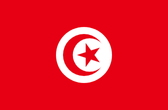
Call 0330 880 3600 Calls may be monitored or recorded. Opening Times.
- TRAVEL INSURANCE
- COVID-19 ENHANCED COVER
- More Options
- Help & Advice
- Existing Customers

Call 0330 880 3600 Calls may be monitored or recorded. Opening Times.

Need help?
UK Customer Services0330 880 3600*
Open Monday to Friday 9:00am to 6pm, Saturday 8:30am to 4pm and closed Sundays.
*Calls are recorded for training and quality purposes.

Official name: Republic of Tunisia
Capital city: Tunis
Languages spoken: Arabic, French
Population: Around 12.5 million
Currency: Tunisian dinar (TND)
Time zone: GMT+1
Driving side: Right
Climate: Hot, dry summers along the coast, mild winters, and cooler conditions inland and in the mountains
Tunisia is a North African gem with a Mediterranean coastline, Roman ruins, and the vast Sahara desert. Visitors come for its beach resorts, bustling souks, and cultural heritage - from Carthage to El Jem’s amphitheatre. It’s also a convenient and affordable sun destination just a short flight from Europe.
Travellers should note that there is a risk of terrorism in Tunisia, and past incidents have targeted tourist areas. Demonstrations sometimes occur in Tunis and other cities, which can disrupt travel and occasionally turn violent. Security presence is high in resorts, but visitors should remain alert and avoid political gatherings.
Tunisia lies on the Mediterranean coast of North Africa, bordered by Algeria to the west and Libya to the southeast. The north offers rolling hills and farmland, the central region has salt lakes and deserts, and the south opens into the Sahara. Its long coastline features sandy beaches and fishing ports.
Tunis–Carthage International Airport (TUN) is the main gateway, with other airports in Monastir, Enfidha, and Djerba. Tunisia’s resorts along Hammamet, Sousse, and Djerba are popular with holidaymakers. Beyond the beaches, highlights include the Medina of Tunis, Roman ruins at Dougga and El Jem, and desert adventures in Douz or Tozeur. Public transport is inexpensive, with trains and louage (shared taxis) covering much of the country.
UK nationals do not need a visa for stays of up to 90 days. Passports must be valid for the duration of stay. The British Embassy is located in Tunis and can provide consular support if required.
The Tunisian dinar (TND) is the official currency. It is a closed currency, so it cannot be taken in or out of the country. ATMs are widely available in cities, and credit cards are accepted in larger hotels and restaurants. Cash is best for markets and small businesses.
Healthcare in Tunisia is better in Tunis and larger cities, but more limited in rural areas. Travel insurance is strongly recommended, ideally including medical evacuation. Tap water is treated in cities but bottled water is a safer option for visitors. Summers can be extremely hot, especially inland, so staying hydrated and protecting against the sun is important.